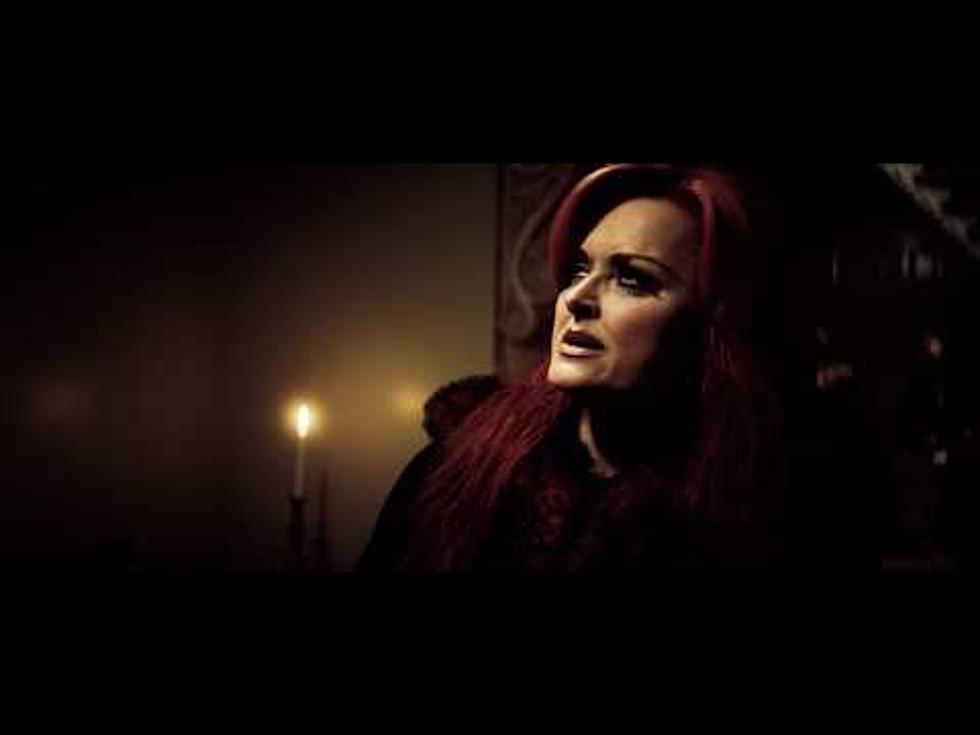How ‘You’ll Never Walk Alone’ Became a Global Anthem
Shortly after the May 2017 Manchester terrorist attack, locals broke into Oasis' hit "Don't Look Back in Anger" following a moment of silence. Days later, as fans were evacuating the first day of the Rock am Ring Festival in Nürburg, Germany, due to a terrorist threat, they were singing "You'll Never Walk Alone," from Rodgers and Hammerstein's 1945 musical, Carousel.
While it makes sense to outsiders why "Don't Look Back in Anger" would be sung — Mancunians singing an anthem recorded by a Manchester band — the idea of German heavy metal fans singing "You'll Never Walk Alone" seems a bit harder to grasp. But an inspection of the song's history reveals how it has transcended borders, and was a perfectly natural choice in the moment.
Despite a heavily dated plot where the female lead, Julie, excuses the beatings she gets from her husband, Billy Bigelow, Carousel contains some of Rodgers and Hammerstein's most enduring songs, including "If I Loved You," "Soliloquy" and "What's the Use of Wond'rin?" But none has reached the status of "You'll Never Walk Alone," which appears twice in the second act. The first time is when Julie's aunt Nettie Fowler, sings it to comfort Julie after Billy kills himself following a botched robbery. The song also closes the show when, years later, Billy's ghost attends the high school graduation of his and Julie's daughter.
"You'll Never Walk Alone" is 36 bars, with neither a verse nor chorus, and a melody line by Rodgers that gradually climbs to a stirring climax. Hammerstein's lyrics are a homily about overcoming adversity by facing it head-on with unwavering optimism. Although that may seem a bit naive by modern standards, anthems are often most effective when they’re at their most simplistic.
When you walk through a storm
Hold your head up high
And don't be afraid of the dark
At the end of a storm
There's a golden sky
And the sweet silver song of a lark
Walk on through the wind
Walk on through the rain
Though your dreams be tossed and blown
Walk on, walk on
With hope in your heart
And you'll never walk alone
You'll never walk alone
In October 1963, seven years after the film adaptation, Gerry and the Pacemakers, one of the many Liverpool, England-based acts that got signed to record deals in the wake of the Beatles' success, released their own take on it. They gave it a pop arrangement — with a slightly speeded-up waltz tempo and an arpeggio piano line — and took it to No. 1 on the British chart.
Prior to matches at Anfield, the home ground for Liverpool Football Club, a DJ would play the Top 10 songs over the PA system. With so many local acts — not just the Beatles and Gerry and the Pacemakers, but also Billy J. Kramer & the Dakotas and Cilla Black — having hits, the pre-match playlist became a source of pride in Liverpool, especially to those who stood on the Spion Kop, the terraced section of the stadium behind the south goal that, at the time, held 28,000 fans.
Marsden, a Liverpool supporter, was at Anfield the week his song cracked the Top 10. "I was at the game and the fans started singing it," he told the club's website. "They were singing my song and it was great! When it went out of the Top 10 they took the song off the playlist and then for the next match the Kop were shouting 'Where's our song?' So they had to put it back on. Now, every time I go to the game I still get goose pimples when the song comes on and I sing my head off."
“The greatest quality of the song, I think, is the message of stoicism,” Paul Du Noyer told the Independent. “It is a song of perseverance and endurance. There is a great solidarity in Liverpool and that is a virtue to which that song appeals, it is a collective kind of anthem. People in Liverpool do feel they are stuck on the edge of the land and when they gather in large numbers, whether it is Anfield or Goodison [Park, the home of Liverpool’s other big club, Everton], they do feel a sense of kinship that kicks in and the song is very effective at speaking to that feeling.”
Over the years, this morphed into "You'll Never Walk Alone" being sung by the fans as the teams walked out onto the field and in the game's final minutes when Liverpool was winning. Pink Floyd’s 1971 song “Fearless” includes a snippet of the Kop singing it. The connection between the club and the song was solidified in 1982 when its title was inscribed on the Shankly Gates, named after their legendary manager Bill Shankly, leading into Anfield.
On May 11, 1985, 56 people were killed when a fire broke out at Valley Parade, the stadium for Bradford City FC, during a match. A number of British musicians, including Marsden and Paul McCartney, recorded a new version of the song to raise money for the victims' families, which spent two weeks at No. 1 in the U.K.
Four years later, on April 15, 1989, 96 Liverpool fans were crushed to death at Hillsborough in Sheffield during an FA Cup semifinal between Liverpool and Nottingham Forest. Although South Yorkshire police, the British government and the tabloid press attempted to link the deaths with drunken hooligans, the reality is that the police failed to properly prepare for the number of Liverpool supporters entering that end of the stadium and act once the danger was obvious. Then, they made the fatal decision to open a gate normally used for after the game, thereby allowing far more people than acceptable into the stadium, resulting in the crush.
The tragedy shook the city of Liverpool to its core and “You’ll Never Walk Alone” now became an anthem whose meaning extended well beyond the results of a soccer game. A month later was the FA Cup final between Liverpool and Everton. With the city still reeling from the deaths, 90,000 fans of both clubs filled London’s Wembley Stadium, and, led by Marsden, sang in a rare moment of unity between the rivals.
Numerous investigations over the years revealed the lengths to which the police had attempted to cover up their negligence, including changing the statements of witnesses and other police officers. It wasn’t until 2012, after decades of work by the team and the victims' families groups, that the truth came out, with Liverpool fans officially being absolved.
In 1992, the “You’ll Never Walk Alone” was incorporated into Liverpool FC’s logo, and next to the Shankly Gates sits a memorial to the victims of Hillsborough bearing the names of the 96 victims and an eternal flame. A 2014 documentary produced by the BBC that also aired on ESPN told the complete story of the Hillsborough disaster.
As “You’ll Never Walk Alone” first started ringing out from the Kop in 1963, Liverpool, under the direction of Shankly, were about to begin a 25-year stretch of dominance in English soccer. Their success gave them the opportunity to compete against other top European clubs. The semifinals of the 1966 Cup Winners Cup brought Glasgow’s Celtic FC to Liverpool. After witnessing the atmosphere at Anfield, they adopted the song as their own.
Other clubs across the globe eventually followed suit. In 1996, a Dortmund band called Pur Harmony, which had previously recorded another song adopted by English soccer fans, “Go West” by the Village People (later covered by the Pet Shop Boys), for Borussia Dortmund, were persuaded to do the same for “You’ll Never Walk Alone. "It's a nice song but it was difficult to make it because of the harmony of the music,” singer Matthias Kartner told Liverpool FC’s website. “It's hard to sing because at first you go very deep and then you go high.”
Still, he gave the recording to the PA announcer at Dortmund’s Westfalenstadion and it went over so well that it became a tradition with the Südtribüne (the “Yellow Wall,” Dortmund’s equivalent of the Kop). "For Borussia Dortmund fans 'You'll Never Walk Alone' is an expression of deep loyalty," Stefan Buczko, a Dortmund supporter told Vice. "It's a pledge that fans will go through the toughest times with their club. Dortmund fans are very proud that they haven't abandoned their club, when it was on the brink of bankruptcy, and that they fill their stadium even if the football is terrible and the results are poor."
In 2016, a Europa League quarterfinal brought Liverpool and Dortmund together, and the traveling Dortmund supporters joined the Kopites in the pre-match rendition of “You’ll Never Walk Alone,” continuing to sing long after Marsden’s recording had finished playing.
Vice adds that it’s also sung by fans in Japan (Tokyo FC), Belgium (Club Brugge), the Netherlands (Feyenoord and FC Twente) and Germany (TSG 1899, Mainz 05, Kaiserslautern, Borussia Mönchengladbach and FC St. Pauli). With Nürburg, the site of Rock am Ring, located within 250 miles of Dortmund, Kaiserslautern, Mönchengladbach, Brugge and Mainz, “You’ll Never Walk Alone” wasn’t so much a surprising choice for fans to sing as they left the grounds as it was an obvious one.
Festival Fever! Your 2017 Summer Music Festival Guide
More From KLAW-FM
![Chris Young Romances Taste of Country Music Festival [Pictures]](http://townsquare.media/site/204/files/2017/06/Chris-Young-Tewey.jpg?w=980&q=75)






![Randy Travis Makes Surprise Appearance at CMA Fest 2017 [WATCH]](http://townsquare.media/site/623/files/2017/06/randy-travis-cma-fest1-e1497034443157.jpg?w=980&q=75)


